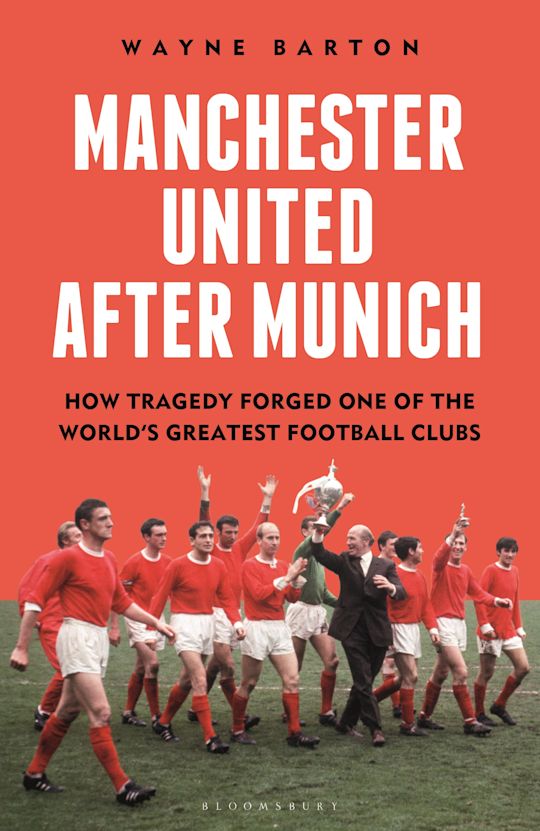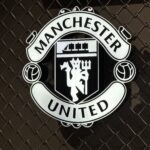When people speak about Manchester United legends, the conversation often turns to the greats who defined eras: George Best, Bobby Charlton, Ryan Giggs, Eric Cantona. But there are some figures whose impact transcends statistics, trophies, or even their on-pitch contributions. Dennis Walker is one of those names. He was not only a Manchester United player, but a pioneer—someone who represented change, progress, and the cultural shifts that defined Manchester itself. To understand why Dennis Walker is remembered as a pioneer for both Manchester United and the city of Manchester, we must place him in his time, appreciate the barriers he helped break down, and recognize the legacy he left behind.

Dennis Walker was born in Manchester in 1944, the son of a mother from Manchester and a father from St. Kitts in the Caribbean. His background placed him at the heart of two worlds at a time when Britain was only beginning to grapple with questions of race, identity, and belonging. Growing up in Manchester, a city that has always thrived on diversity, he embodied the blend of cultures that would later become central to Manchester’s character.
Manchester United in the early 1960s was still recovering from the tragedy of the Munich Air Disaster. Sir Matt Busby, the visionary manager who had seen his young “Busby Babes” cut down so cruelly in 1958, was in the process of rebuilding the team. This was a period of transition, renewal, and experimentation. When Dennis Walker joined United, he was not just another promising young player—he was the first black footballer to sign for the club.
He was also part of the schoolboy generation whose heroes were killed in the crash. He was schoolboy friends with the grandson of Sandy Turnbull, who had scored the winning goal for United in the 1909 FA Cup Final. Like many in the area, Dennis and his friends spoke of their dream of playing for United… for one, that dream was to come true.
At a time when football in England was overwhelmingly white, his presence in the United setup was groundbreaking. His signing sent an important message: talent and determination mattered more than skin color, even in a society that often thought differently. For Manchester United, a club with a global outlook even in those days, Walker’s inclusion showed that the club was willing to reflect the diversity of its home city.
Walker began to make a big impression in the reserve team in the 1962/3 season. He played at outside left, and scored in consecutive games against Liverpool, Bury and Manchester City in November. Late in the season he impressed in games against Burnley and Preston North End, and was called into the senior team to face Nottingham Forest in May 1963.
That game etched his name permanently into the history books as the first black player to represent Manchester United at senior level. For a club whose history would later feature some of the most celebrated black footballers in English football—Viv Anderson, Paul Ince, Paul Parker, Andy Cole, Dwight Yorke, Rio Ferdinand, and many others—Walker’s debut marked the start of a lineage.

Walker’s time at United did not lead to a long first-team career, but like many players of his generation, his football journey continued elsewhere. He moved to York City, where he had more regular opportunities to play. At York, he was known for his versatility and energy, and he became a respected figure in the lower leagues, and even for Montreal Olympique, who were playing in the NASL.
Decades after his footballing career, Dennis Walker showed another kind of courage—this time off the pitch, in the heart of Manchester itself. On 15 June 1996, the IRA detonated a massive bomb near the Arndale shopping centre, the largest bomb ever detonated in peacetime Britain. The explosion devastated the city centre, injuring more than 200 people and leaving scars that would take years to repair.
At the time, Dennis Walker was working as a security officer at the Arndale. When the threat became clear, and as chaos unfolded, he acted with extraordinary bravery, helping evacuate shoppers and colleagues to safety. In an era before the constant training and protocols we see today, his quick thinking and calm under pressure saved lives.
This act of bravery cemented his status not just as a football pioneer but as a true Mancunian hero. While others fled the danger, he put himself in harm’s way to protect others. He had evacuated the last of the public before the bomb exploded; the force threw him across the street. It was a miracle he survived.
For the city of Manchester, his actions symbolized the resilience and courage that Mancunians pride themselves on.

The word “pioneer” is not used lightly. To be a pioneer is to go first, to take on risks and challenges without knowing what lies ahead. Dennis Walker’s debut for Manchester United was not just another statistic—it was a cultural moment. He entered spaces that had never been entered before by someone of his background, and he did so with dignity and courage. His bravery during the Arndale bombing decades later reinforced that pioneering spirit.
In the years since his playing career, recognition of Dennis Walker’s role has grown. As football has become more reflective about its history and more aware of the challenges black players faced in earlier decades, his name has been brought back into the conversation. Manchester United now celebrates its diverse history, and Walker’s contribution is central to that story.
But his legacy in Manchester is just as much about his courage in 1996 as it is about his football career. He is remembered not only as United’s first black player but also as a man who stood up in a moment of crisis, embodying the city’s spirit of resilience and community.
Dennis Walker’s name deserves to be remembered not only in the record books but in the wider story of Manchester and Manchester United: a pioneer, a trailblazer, and a hero.



